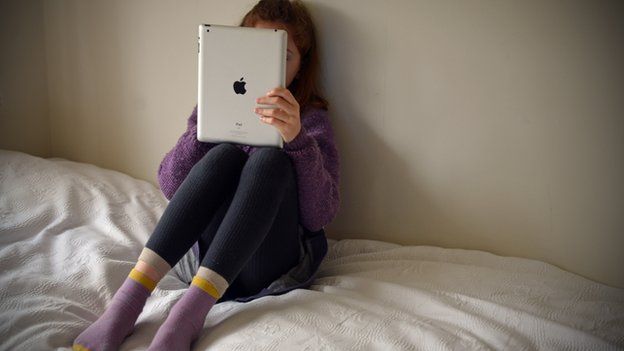Campaign calls for children's 'right to be forgotten'
- Published

A campaign has launched to promote the idea that children should be able to delete their online past.
Called "iRights", its proposals include the right for young people to be able to easily edit or delete content they have created online.
Baroness Shields, the UK's Minister for Internet Safety and Security, is backing the move.
A report by the Children's Commissioner for England examining the rights will be published by the end of the year.
The iRights framework is intended to inspire businesses to work with the government on better protecting and empowering young people in terms of their online activity.
As well as supporting children's "right to be forgotten", iRights says young people have a right to digital literacy and should be well informed about how their data might be used.
A host of companies and charities, including Barclays bank, the NSPCC and law firm Schillings, have signed up to the campaign.
Better digital world
Baroness Shields said, "iRights gives a unique insight into how government can join with technology companies, civil society and business to make a better digital world for young people.
"We are using iRights in education, business and in our own services and digital communications."
Rachel O'Connell, a government adviser and founder of Trustelevate.com, said the proposals largely represented EU laws that would come into force over the next few years.
She cited new rules on data protection that will take effect in the UK from 2016 as an example.
Ms O'Connell added that young people were increasingly becoming wise to the need to protect their privacy and identify online.
'Commercial advantage'
"There is a movement amongst children and young people in terms of reclaiming what they can in terms of privacy, ownership of their body and images of them online," she said.
"A lot of businesses are realising that privacy is a commercial advantage."
Ian Walden, a legal expert at Queen Mary University of London, said companies often needed prompting before they took privacy issues seriously.
"Many of the companies out there that we know and love are making huge amounts of money from children," he said.
"There needs to be a focus on responsibility when dealing with those children, which isn't always present."
- Published27 May 2015
- Published26 June 2015
- Published16 June 2015